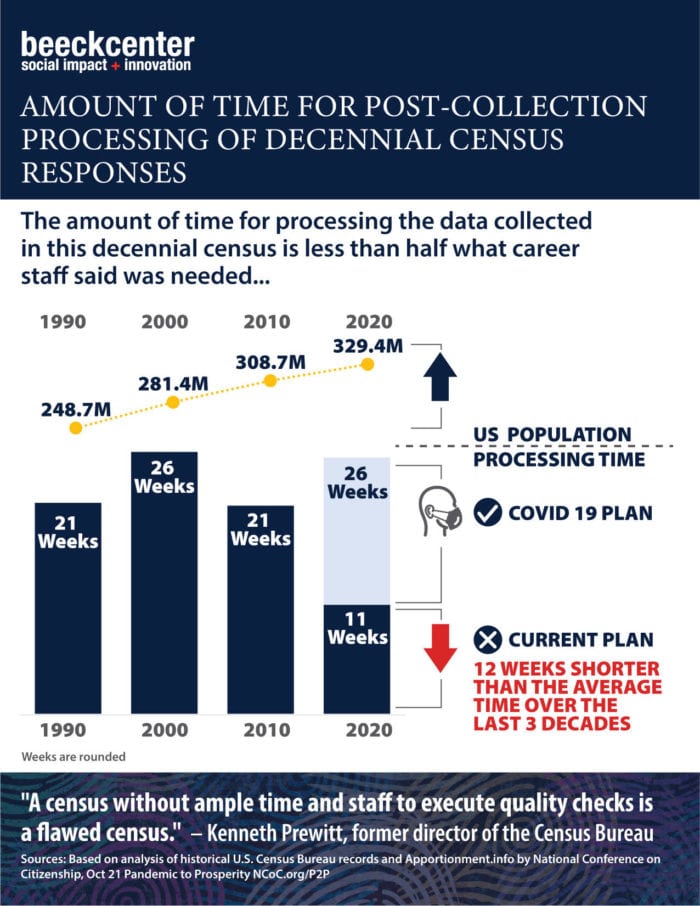
Georgetown panel assesses how the figures may be skewed.
According to Rob Santos, vice president and chief methodoloist at the Urban Institute in Washington D.C., the risk of having an inaccurate census is particularly strong for the year of 2020. On December 14, the Beeck Center for Social Impact at Georgetown University, Journalist’s Resource, and the Center for Investigative Reporting held a webinar to help people understand the Demographic Analysis that the U.S. Census Bureau will be releasing this upcoming week. Speakers included Santos, former Census Bureau director John Thompson, and Tierney Sneed, an investigative reporter for Talking Points Memo. The discussion was moderated by Kyla Fullenwider, senior fellow at the Beeck Center and former chief innovation officer at the Census Bureau.
Santos said that problems relating to the accuracy of the 2020 census are tied to unprecedented challenges that the country faced this year, including economic downturn. Historically hard to count populations became harder to count, with the coronavirus impacting communities of color. Neighborhoods of color had very low self response rates, while suburban middle and upper class neighborhoods, which tended to be more white, had very high rates.
“The threat to accuracy, in 2020, is real,” said Santos. “The public deserves to know the strengths and limitations of those counts. So how do we do it? The only way we can do it is through transparency.”
Sneed addressed how the accuracy of census data connects to voting rights. The count will affect apportionment, the process of determining the number of members each state sends to the House of Representatives, based on population numbers. With undocumented immigrants not being counted, this could decide that house seats that would have gone to immigrant rich states will go to more rural, Republican leaning states.
“Another question… is what community groups, what stakeholders are most affected by the potential for skewed data?” said Sneed. “…It’s worth also looking at where the shortcuts may have occurred, and where those shortcomings and the accuracy may be felt the hardest. We’ve seen already in some of the reporting that’s come out about how the final stages of data collection were rushed, that in some places, enumerators reported that they were told to skip certain steps.”
Shira Laucharoen is a reporter based in Boston. She currently serves as the assistant director of the Boston Institute for Nonprofit Journalism. In the past she has written for Sampan newspaper, The Somerville Times, Scout Magazine, Boston Magazine, and WBUR.

